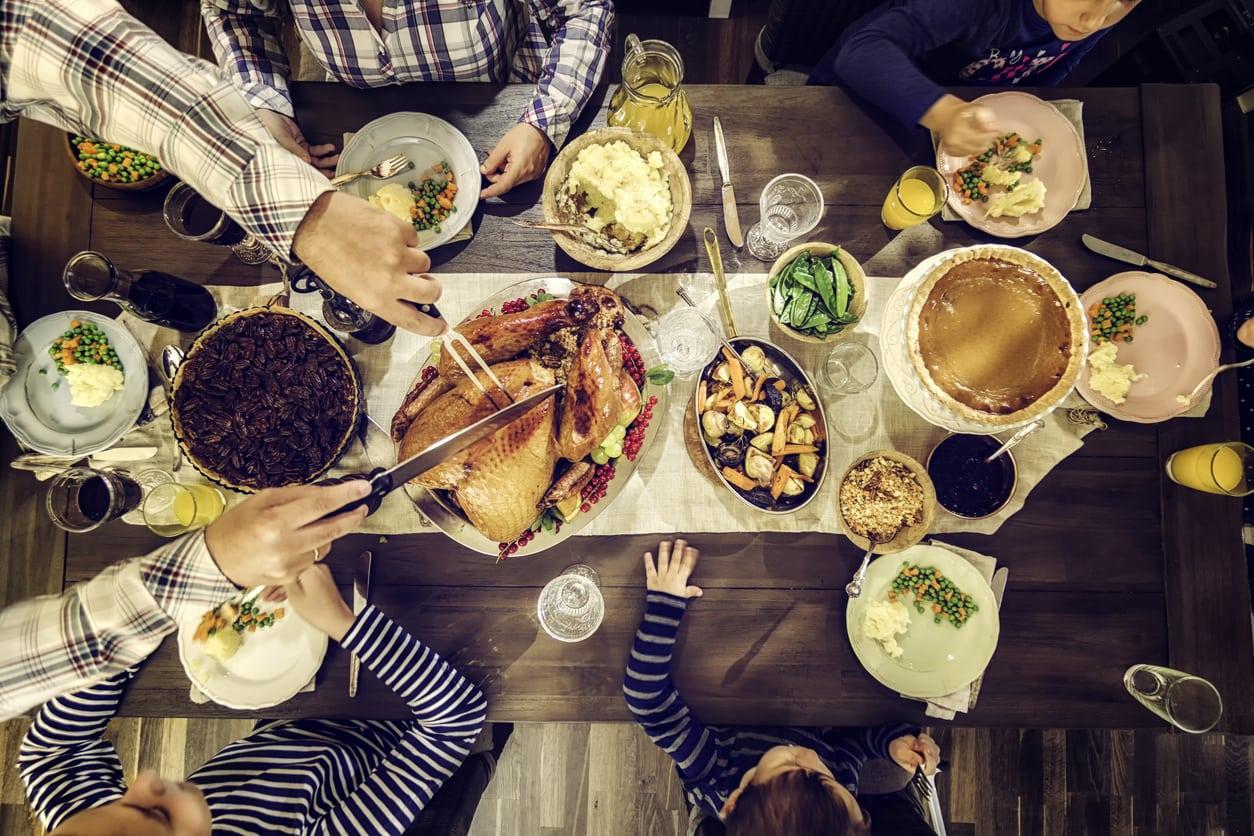
You’re not sure there’s enough turkey to go around, everyone’s had a little too much to drink, and you’re stuck making small talk with a third cousin you just met.
When you’re gathered around the Thanksgiving table with friends and relatives of all generations, you don’t want to add to your stress by dredging up old family dramas or bringing up potentially divisive topics.
So we’ve compiled some safe subjects that capture the holiday spirit and remove stress from the menu–from Neanderthal families to the genetics of gratitude. Consider them three secret ingredients for an interesting–and conflict-free-dinner conversation.
Family ties
In the past several decades, we’ve learned quite a bit about Neanderthals, our closest extinct human relative who disappeared roughly 40,000 years ago.
There’s evidence that Neanderthals used tools, created art, and, as a result of interbreeding with modern humans, left a genetic legacy that impacts many of us today.
And a new discovery suggests they may even have shared some of our social structures.
An international research team identified the first known Neanderthal family: a father, his teenage daughter, and others who appear to be close cousins.
The family was found alongside stone tools and bison bones in Chagyrskaya Cave, located in the Altai Mountains near the Russian border with Kazakhstan, Mongolia, and China.
Researchers used the DNA from vertebrae, teeth, and other bones to learn more about this Neanderthal family–from their social organization to their migration and interaction patterns.
They found very little genetic diversity within this clan, suggesting that Neanderthals in this area lived in small groups.
But they did discover a high degree of diversity in the mitochondrial DNA passed from mothers to their children. This indicates that these Neanderthal women tended to leave the group where they were born and move from band to band.
Spur some dialogue this Thanksgiving by contemplating the role our distant Neanderthal cousins played in the human story. You can even view and compare evidence of Neanderthal ancestry in your genome with 23andMe’s Neanderthal Report.
Cheers
Why does a glass of cabernet turn your cheeks red but only makes your opinionated uncle louder? Look to the ALDH2 gene, which contains instructions for making a protein that helps the body process alcohol.
When we drink, a toxin called acetaldehyde is produced as the body breaks down the alcohol. The body then clears out this toxin by breaking it down further.
In people with a particular ALDH2 genetic variant, this enzyme is less efficient at clearing away acetaldehyde than in people without the variant, which can result in what’s known as the alcohol flush reaction and other unpleasant symptoms like nausea and sleepiness.
The variant is most common in individuals with East Asian ancestry. Scientists believe the alcohol flush variant first appeared in ancient China due to a random genetic mutation and spread to neighboring regions as people migrated.
When you’re passing the wine around this year, consider how your genetic makeup can influence your tastes and preferences. And you might even think about serving a good non-alcoholic drink option, too.
The genetics of gratitude
Thanksgiving offers a moment to pause–take stock–and be grateful for what we have. But some may find it easier to feel and express gratitude than others.
Genetics may help explain that gap.
In a study published in Social Cognitive and Affective Neuroscience, researchers from the University of North Carolina and Ohio State found that specific variants in the CD38 gene were associated with the quality and frequency of expressions of gratitude toward a romantic partner both in the lab and in daily life.
The CD38 gene is a regulator of oxytocin release and social processes. Oxytocin is a neuropeptide that impacts pro-social behaviors like trust and affection. It’s involved in all social interactions–from caring for an infant to hugging a romantic partner.
COMT may be another gene that influences gratitude. A 2017 study revealed that individuals with one version of this gene experienced more gratitude, while people with another variant reported feeling less grateful.
Whether you’re genetically disposed to appreciation or not, there’s still a slew of well-documented benefits for giving thanks around the table, including higher levels of self-reported well-being and better physical health.




